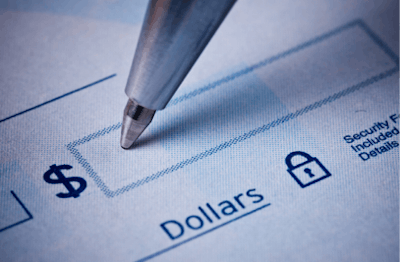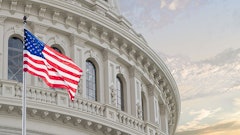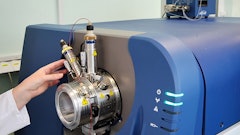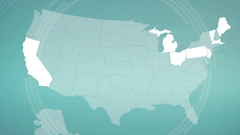
So, you have your license, and you are in business, and you’d like a checking account.
No loan, nothing risky, just a simple checking account.
A few days later, you’ve been turned down by the bank that you’ve always used, and by a few others. What’s going on?
Some friends tell you about the FinCEN memo and the Cole memo(s), but they don’t have checking accounts, either, and they’ve been trying for a long time.
OK, now what?
Let’s start from a banker’s point of view. First question: Which banker?
A banker who reports to an office in San Francisco, or New York, or Charlotte, whose bank has more than 6,000 branches, or even more than 1,000 branches, has concerns beyond the scale of our entire industry. They will be unlikely to have an interest in your account.
Either a small, legacy (old) bank or a small, start-up bank (in either case, with more like one to five offices) might consider your account worth the trouble. What trouble?

Your local banker won’t get to the aforementioned FinCEN memo or to the Cole memo(s) until they get by the Yates memo. Remember Sally Yates, who stood up to Trump, even though it got her fired? Same tough lady. According to her 2015 memo to Department of Justice prosecutors, the DOJ will not settle prosecutions against banks or other companies unless the individuals involved are also prosecuted criminally (jail) or civilly (sell the house to pay the fine). We may not have noticed that Yates memo, but your banker noticed it. Why does this matter?
Since 1970 (and the beginning of the War on Drugs), federal anti-money-laundering statutes have been established and then strengthened seven times, especially after 9/11. A financial institution (not just a bank) must have in place a Customer Identification Program, with a training program for the bank’s employees, and a paper trail that the bank monitors and that the bank’s federal examiners can audit. All of this means that the bank must maintain documentation that proves that you are neither a black-market dealer nor a terrorist.
By now, you might be thinking something like, “OMG. Really? We all know who I am. All I want is a checking account.”
Even though your banker knows who you are, however, they also know that the federal government has imposed more than $5 billion in fines for anti-money-laundering violations such as, “Failure to maintain a commitment to an adequate anti-money-laundering program.” From your banker’s point of view, you are not the problem. It’s the FDIC auditor in the background who terrifies them.
Now that we understand our banker’s concerns, we can get back to the FinCEN memo, issued by the U.S. Treasury on Feb. 14, 2014. On page two, the FinCEN memo recites the priorities of the Cole memos, which are, in brief:
- no distribution to minors,
- no gangs,
- no diversion to other states,
- no cover for other illegal activity,
- no guns or violence,
- no drugged driving,
- no use of public lands,
- no use of federal property.
From your point of view, no problem at all. Back to FinCEN: From the bottom of page two through the top of page three, the FinCEN memo lists seven requirements for financial institutions that wish to provide services to marijuana-related businesses: “In assessing the risk of providing services to a marijuana-related business, a financial institution should conduct customer due diligence that includes:
- verifying with appropriate state authorities whether the business is duly licensed and registered;
- reviewing the license application (and related documentation) submitted by the business for obtaining a state license to operate its marijuana-related business;
- requesting from state licensing and enforcement authorities available information about the business and related parties;
- developing an understanding of the normal and expected activity for the business, including the types of products to be sold and the type of customers to be served (e.g., medical versus recreational customers);
- ongoing monitoring of publicly available sources for adverse information about the business and related parties;
- ongoing monitoring for suspicious activity, including for any of the red flags described in this guidance; and
- refreshing information obtained as part of customer due diligence on a periodic basis and commensurate with the risk.”
You may wish to note that federal anti-money-laundering statutes now require bankers to know approximately the same information about any other business.
Also, the red flags mentioned in (vi), typify behavior of criminal enterprises; not your problem.
We consider these requirements to be simple and straightforward. In a loose-leaf binder, we furnish our license, our application, our background (often from the application), our customer list and our product list. We also furnish all relevant contact names and telephone numbers, and we make the appropriate in-person, telephone and email introductions, especially to our regulators. We also update the information quarterly, and deliver news of potentially significant events as they happen.
Back to our goal: to open a checking account. We’ve covered two pages of the FinCEN memo and, in addition, why you should work with a small, local bank willing to pay attention to you, and what the banker’s concerns will be.
We have had no experience without a bank. From our point of view, it should be in the government’s interest to track our financial progress, and we are pleased to be tracked. Our banker only rarely asks for something that we have not already given to her. She can be confident that she knows of all significant developments in our company and in our industry. She can also be confident that we pay attention to basic bank regulations. We file IRS form 8300s for cash more than $10,000.
Final insight: We have agreed with our customers that we do not count cash. The customer places all cash into a bank envelope and signs over the seal. The amount of cash in the envelope is precisely the amount that the bank finds in there when the bank opens the envelope. This saves time and headaches.
Best of luck!





















